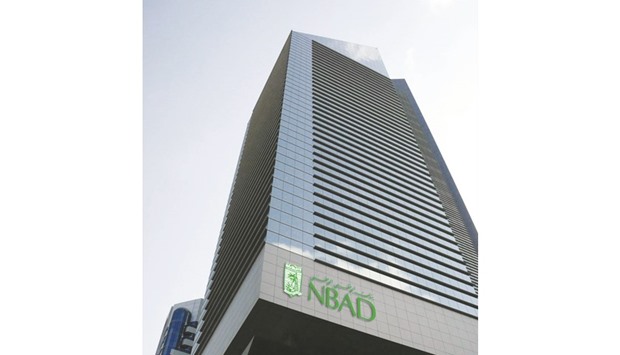Gulf borrowers are back in the bond market, and a new pattern is emerging.
As debt sales from issuers in the six-nation Gulf Cooperation Council surge by a third, Bahrain and Oman have opted to privately place sovereign issues. Bloomberg data show a jump in transactions done out of the public eye, and Abu Dhabi’s biggest bank says the number of such deals it has helped manage this year is 100 times the same period in 2015.
“We have seen a significant uptick in the volume of private placement issuance,” said Andy Cairns, the global head of debt origination and distribution at National Bank of Abu Dhabi. They are “a discrete means of accessing under-the-radar liquidity, albeit at higher cost, without contaminating their public curves,” he said.
Nations in the crude-exporting bloc, battling to plug fiscal shortfalls the International Monetary Fund says will total almost $900bn through 2021, are rushing to market before the US Federal Reserves raises interest rates and as the holy month of Ramadan looms, when business typically slows. The wave of private placements, where issuers circumvent the public documentation and marketing process of regular bond sales, marks a shift in borrowing habits amid the slump in oil prices that’s pressuring budgets in the region’s $1.6tn economy.
GCC bond sales climbed 32% to a total $15.9bn this year, according to data compiled by Bloomberg. Dubai’s government sold a $569mn privately-placed sukuk in March and Emirates NBD, the United Arab Emirates’ biggest bank, raised $499mn from such deals.
Bahrain, whose debt rating was lowered by Moody’s Investors Service on Saturday, has tapped the dollar-bond market for a second time in three months with a $435mn privately-placed sukuk, according to people familiar with the matter. Oman’s government is marketing a private benchmark dollar-denominated security, two people with knowledge of the deal said this week.
“Most private-placement issuances are underwritten by the arrangers, which in turn provides the issuer with certainty of execution and pricing,” said Rizwan Kanji, a Dubai-based partner at law firm King & Spalding, who structures Islamic deals.
“Over the last year we have and are advising on issuances with a potential aggregate value of just short of $1bn across about ten transactions. It was a very active year and that’s continued into the first quarter.”
Not all borrowers have abandoned public bond sales. Etihad Airways was planning to start meeting bond investors in the Middle East before a possible issue.
Dubai ports operator DP World has selected banks for an Islamic bond offering. Qatar, the world’s biggest liquefied natural gas exporter, plans to raise as much as $5bn from a planned sale as early as this month, according to reports.
Still, some borrowers prefer private placements, Cairns said. “Almost exclusively, in the current environment private placements are being issued by regional banks who recognise that their funding costs are elevated,” as investors are prioritising sovereign and corporate debt, he said.
Qatar National Bank, the Gulf country’s biggest lender, raised $2.62bn this year from private placements, including two-year floating rate notes issued in April at a spread of 140 basis points over the three-month London Interbank Offered Rate. That compares with a spread of about 100 basis points over midswaps for an existing bond due in 2018, according to data compiled by Bloomberg.

Bloomberg data show a jump in transactions done out of the public eye, and Abu Dhabi’s biggest bank says the number of such deals it has helped manage this year is 100 times the same period in 2015
